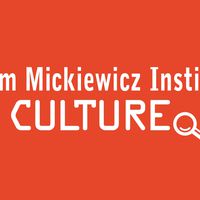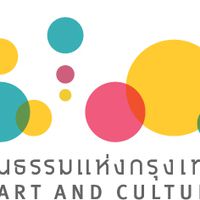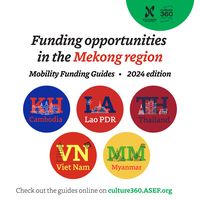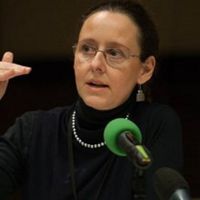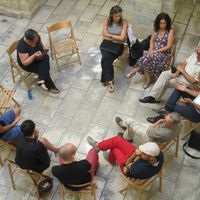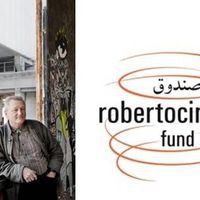Exchange, Cooperation and Cultural Mobility: Visions from Vietnam | Interview with Nguyen Phuong Hoa
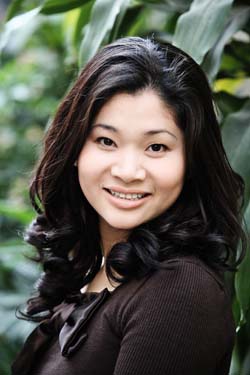
In order to deepen the research on cultural mobility and to keep exploring the Asia-Europe connection, culture360 contributor Herman Bashiron Mendolicchio took the opportunity to interview Nguyen Phuong Hoa, Deputy Director General at the International Cooperation Department of the Ministry of Culture, Sports and Tourism of Viet Nam.
Herman Bashiron Mendolicchio: Could you please introduce your department in the Ministry of Culture of Vietnam and tell me which are your main aims and activities?
Nguyen Phuong Hoa: The Department can be defined as “a bridge that connects Viet Nam and the world in culture, sport, tourism and family issues”.
Main activities:
- Negotiate and sign bilateral and international agreements on cultural exchange/ cultural cooperation (42 agreements in the last 5 years)
- Represent Viet Nam at international cultural fora
- Manage the operation of Viet Nam Cultural Centres abroad and overlook foreign cultural centres in Viet Nam
- Organise Vietnamese Cultural Days/Week/Month/Year abroad
- Facilitate the organisation of foreign cultural programmes and events in Viet Nam
- Cooperate with other Vietnamese authorities/agencies in hosting international arts festivals in Viet Nam
HBM: Do you have any specific programme related with artistic and cultural mobility?
NPH: Every year, the Ministry has a specific budget allocated to the Department for receiving in-coming delegations and sending out-going delegations abroad.
2008: 1.624 outgoing people, and 891 incoming visitors
2009: 1.750 outgoing people, and 1.28 incoming visitors
2010: 1.861 outgoing people, and 1.143 incoming visitors
2011: 1.159 outgoing people, and 1.705 incoming visitors
2012: 1.689 outgoing people, and 978 incoming visitors
The purposes of the outbound delegations include exchange of artists, participation in international festival, organisation of Vietnamese cultural days abroad, study tours.
HBM: What kind of cultural mobility projects do you develop and/or fund?
NPH:
- Send art troupes to perform in Viet Nam Cultural Days/Week/Month aboard
- Fund Vietnamese artists to take part in International Arts Festivals/International Fairs/Contests
- Give patronage to arts event organised by foreign partners (Embassy, Cultural Centres, Corporate: Hennessy Concert, Toyota Concert)
HBM: Do you think that mobility and exchange are important for artists and cultural operators? Why?
NPH: It is important to fund cultural mobility because it is an effective way to promote cultural exchanges between countries, thus enhancing mutual understanding between peoples, cherishing tolerance, social inclusion and nourishing cultural diversity.
For artists and cultural operators, exchange and mobility can help to broaden their eyes, open their minds, enrich their experiences, enhance their professional capacity and strengthen networking. It opens new opportunities and horizons.
HBM: How do you select artists, researchers or cultural operators? How is your evaluation process?
NPH: The programme funded by the Ministry limited to artists, researchers, cultural operators working in the state owned institutions/theatres. The selection based on their reputed programmes and their ability to produce a tailor-made programme to the receiving country.
Evaluation is made basing on reports from the art-troupe, the co-organisers abroad (the Embassy/ the organising committee of the festival etc) and media review (if any).
HBM: What do you think about the relationship between mobility and education?
NPH: Mobility is an important part of self-learning process. As mentioned before, it contributes to cultural exchange which can enrich education.
HBM: Which is your internationalisation strategy? What kind of partnerships, networks and international collaborations are you currently developing?
NPH: The Government of Vietnam approved the Cultural Diplomacy Strategy in 2009 and is developing another Cultural Internationalisation Strategy. The aim of the strategies are to enhance the understanding of the world about Viet Nam and its culture, thus, building mutual trust, strengthening relations between Viet Nam and other countries towards a sustainable, stable cooperation, so that, the position of the country can be raised, creating favourable conditions for the country’s socio-economic development. On the other hand, through cultural exchange and cooperation, Viet Nam could absorb quintessence of the world cultures, thus, enriching and diversifying its traditional culture.
Viet Nam welcomes all stakeholders, from public and private sectors, at national and local level to participate in the delivery of the strategy. The Ministry of Culture, Sports and Tourism of Viet Nam maintains close partnerships with foreign embassies in Viet Nam and foreign cultural centres (e.g. EUNIC) in Viet Nam in organising cultural activities. Public-private partnership is also encouraged, such as partnership with Toyota, Kumho, CJ etc…
HBM: Talking about obstacles in mobility, what is your policy in relation to Visa issues? Do you have any plan in order to improve the visa procedures for artists and cultural operators?
NPH: Visa is still an obstacle in mobility. For official exchange programme such as German Year in Viet Nam, Viet Nam Cultural Year in France or French Cultural Year in Viet Nam, two parties have negotiated a free visa mechanism for artists (fee exemption), or created a facilitation process for visa issuance.
In an effort to facilitate the coming of visitors to Viet Nam, the Ministry of Culture, Sports and Tourism has recently convinced the Prime Minister to maintain the policy of no entry visa to Viet Nam (up to 15 days) for visitors from Russia, Japan, Republic of Korea, Sweden, Denmark, Norway and Finland.
HBM: What is your vision for the future?
NPH: Cultural exchange and mobility is irreversible trend in the integrated world. Given the stated above benefits it may bring about for individual artists and for the whole society, Governments should make policies, grant funds and create favourable conditions to facilitate cultural exchange and mobility of artists and cultural operators.

